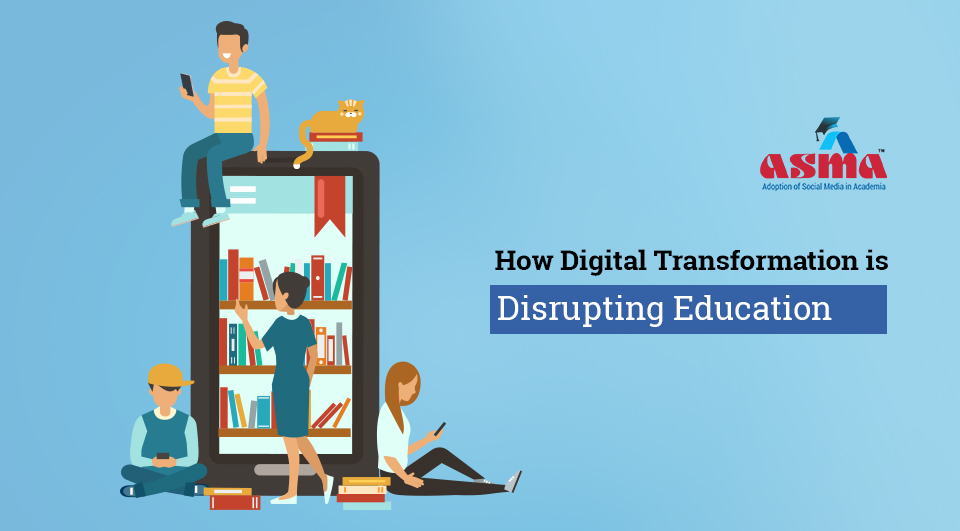How Digital Transformation is Disrupting Education
Technology is considered as an engine of economic growth. It has brought lot of positive disruption in business. The same is poised to happen in education sector too.
Disruption is driven by capabilities of new technologies to fulfill the changing demands of a rapidly evolving education sector. When it comes to students, there are some significant innovations disrupting the way their higher education experience is being delivered. Classrooms and textbooks are giving way to virtual learning environment.
Digitalization is giving way to innovative teaching methods enabling students to learn from anywhere. Multitude of digital tools such as smart phones, e-readers, mobile apps, tablets, laptop and above all internet are completely changing the way students learn, engage and collaborate.
Here are few big ideas about how technology is pushing disruption in education. “These disruptions are transforming educational content and changing learning experiences of students in an impactful way”.
Introduction of Technology Enabled Collaborative Platforms
In recent years, many schools and colleges have introduced technology enabled learning systems in the curriculum. Black boards have given way to smart boards and e-books have replaced text books. Publishing houses are also coming forward to develop technology driven curriculum.
Such collaborative platforms are gaining popularity among educationists as it puts learners in a more interactive learning environment impacting teaching outcome.
Internet is the greatest enabler of collaborative learning in the 21st century. It is making students-teachers collaboration easier and effective. Technology platforms such as Google, Microsoft etc. are giving birth to global classrooms.
Breakthroughs in technology is encouraging increasing number of educators to experiment with new ways of collaborative teaching such as flipped classrooms. Under the flipped classroom, students get learning materials in the form of video lectures and have to come prepared for further guidance of the teacher. In this way, in-class time is utilized for more productive discussions and collaborative work.
Use of collaborative technologies is proving extremely successful in education. It is making the whole educational experience flexible and personalized. With the use of collaborative platforms in education, class time can be devoted to deeper subject analysis and collaboration for developing higher order of cognitive skills such as problem solving and critical thinking.
How Virtual Reality (VR) and Augmented Reality (AR) is Impacting Education
Virtual Reality (VR) and Augmented Reality (AR) are one of the hottest edutech trends nowadays. The inclusion of VR and AR technologies in curriculum allows students to understand subjects in a whole new format.
The Augmented Reality (AR) market is projected to reach a value of $1.3 trillion by 2035. (Source: https://futurumresearch.com). It has potential to transform many industries including education. For example, recent applications of this technology in medical science allows students to visualize the functioning of human body in 3D.
Similarly, in the field of engineering, breakthrough innovation in VR and AR is making it possible to understand working of 3D functions in 360 degree environment. The same is true for all other art-related disciplines of study as well.
For the moment application of these tools in Indian education domain is yet to kick off in an encouraging way. But this is likely to change soon with several edutech companies collaborating with schools and universities to provide technological tools to support VR-based teaching in the classroom for advanced learning.
Conclusion
The impact of digital disruption in education is opening new pathways of learning for students. Once the prerogative of chosen few, knowledge can now be accessed across geographical boundaries in a way never before. It also means that educational providers have to play a greater role for embracing new possibilities of this digital disruption. Only then schools and universities can keep up with the promise of a better education for next generation students.
Soon it will no longer necessary to be an elite university or academy to get ahead of the curve. But the time to innovate and create relevant educational offers is now or never.



